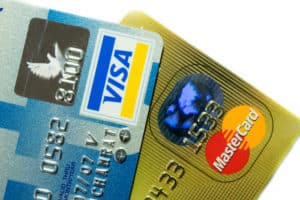
2019-1-29 01:02 |
As finance has evolved, the ecosystem around it has become far more complicated. The addition of card payments, along with their accompanying networks and infrastructure, has introduced many new processes and intermediaries, all for a single transaction.
We may have ‘progressed’ from cash to card, but emerging fintech solutions such as blockchain and DLT are looking past overly complex and expensive systems, and instead bringing back the simplistic principles and functions of cash
Interestingly, blockchain-based payments, such as through the use of cryptocurrency, bring us closer to the traditional trading concept of one person directly paying for another person’s good or service. These payments reduce the need for third-party management, which increases the efficiency of the system and results in lower fees for consumers.
Blockchain blends the simplicity of cash with the far-reaching networks of DLT.
Plastic is not perfect, but neither is cashFollowing the ages of prehistoric barter trading and exchange of goods, money has served as the most common and effective means of payment. Coinage was introduced as early as 1200 BC, and paper notes later in 10th century AD in China.
Paying in cash has long been a preferred and standard way to settle a transaction. The process is simple and involves nothing more than handing cash to the vendor. It does the job effectively, instantly and transparently, with no additional fees.
But it is also not a perfect method for transacting. Cash is prone to forgeries and theft, physical loss or damage, and only functions within a specific region and jurisdiction.
When payment cards, such as credit or debit, were first introduced the financial world they promised a solution to many of these issues. Cards eliminated the need for a buyer to always carry enough physical money for in-store purchases. However, this came at a different cost – topping up an ATM with bank notes is an expensive manual process and poses security risks to those involved.
These cards also introduced fees enforced by banks, payments system operators, scheme operators, and payment card providers. While this may not be a problem in Europe – most card transactions cost less than a 1.5% processing fee – elsewhere, card fees can amount to up to 5% of the transaction amount at the expense of the merchant.
The buyer is always king, but they pay more for itUsing card payments comes at an extra cost. Vendors absorb all of the middle-men fees, and in turn, increase their prices to cover the fees from these card transactions. Ultimately, consumers are the ones that pay for the convenience of card transactions because rational sellers will factor in the increased cost and pass it on the consumer.
Payment networks charge different fees depending on location. As vendors cannot identify the geography of buyers until they’ve made a payment, commonly they will markup the price to include the maximum additional fees just to be on the safe side. In the EU it is illegal to charge different amounts based on the payment method, which places users of cash at a disadvantage as they pay a price which includes the maximum card feeds without even using the service.
With blockchain, buyers also pay for executing transactions but they can often nominate the price or percentage of the cost and are fully aware at the time of purchase what these fees are. These fees are paid to those operating nodes which sustain the blockchain network. This price transparency and fee structure could bring prices back down to pre-plastic era, help merchants and increase spending. Due to their global nature, blockchain payments also do not discriminate between buyer geography and seller industry, making the whole system fairer for all.
In every bank card transaction, intermediary fees are collected to support the card processing providers, banks, the underlying payment and maintenance systems, as well as for losses that are frequently associated with card transactions. Additionally, core banking and payment systems often run on expensive hardware and expensive security tools. These incur additional costs that are then compensated, yet again, through fees that apply to each transaction.
Needless to say, the path to process a card payment process is long and tedious, especially when the buyer and seller are not the clients of the same bank. It can take up to ten different steps and involve more than five different intermediaries, including the merchant’s bank, processor (who routes or processes the transaction, and there can be more than one, especially in cross-border transactions), consumer’s bank (card issuer), card scheme (such as MasterCard or VISA), and the central bank (who settles transactions between the issuing and the acquiring bank).
Ignoring all of these added intermediary fees, the entire process begs the question of how necessary it is to have so many centralized parties conduct a single transaction that ultimately serves only two parties – the vendor and the buyer. A blockchain solution to regain trust efficientlyThe concept of decentralisation and empowerment of the individual has sparked social movements in recent years. Following the Global Financial Crisis of 2008, we have seen an increasing emphasis on financial freedom, stronger autonomy and less reliance on traditionally powerful monopolies.
Within the digital sphere, these notions have begun to take hold and manifest in the form of distributed ledger technologies (DLT) and blockchain.
Blockchain enables transparency in every transactional relationship, which motivates participants to distribute cost burdens in a fairer way.
Transactions on the blockchain depend on a distributed network of interconnected computer nodes to process transactions. And while this does not fully eliminate transaction costs – nodes still need to be compensated for sustaining the network – it solves the issue of trust far more effectively than current centralised systems do.
In addition, blockchain brings greater transparency as every participant running a node has access to the same, complete set of information. This eliminates the need for centralised parties who, traditionally, we had to trust to maintain the integrity of this data.
When making payments, there is full transparency for both buyers and sellers as to the fees incurred. This dynamic makes blockchain-based payments comparable to paying directly with cash, where intermediaries predominantly act as infrastructure providers which have the opportunity to sell additional services.
The security of blockchain cryptography and decentralisation also creates significant efficiency gains in a blockchain payments system, as there is a reduced need for extra security costs or protections against hacks – at least, theoretically as the technology continues to evolve.
The new way forwardThe next natural phase in the evolution of finance should involve blockchain technology. Regulators should abolish uniform pricing that does not depend on payment methods. Instead, they should promote competition between different means of payment. How often has it happened that a card terminal is “temporarily” broken and the seller only accepts cash?
We should promote the use of digital payments with transparent fee structures. This will also help mitigate tax dodging and illicit activities associated with cash payments.
And here blockchain is the answer; higher efficiency, lower costs and inbuilt transparency.
Crypto Briefing does not accept any payment or financial benefit from expert guest authors.
If you are a blockchain expert with an interest in sharing your knowledge and experience, please contact our Managing Editor, Jon Rice, via email at editor AT cryptobriefing.com
The post How Blockchain Can Set Fintech Back Three Thousand Years… And Still Improve Payments appeared first on Crypto Briefing.
origin »Bitcoin price in Telegram @btc_price_every_hour
Cardstack (CARD) на Currencies.ru
|
|















